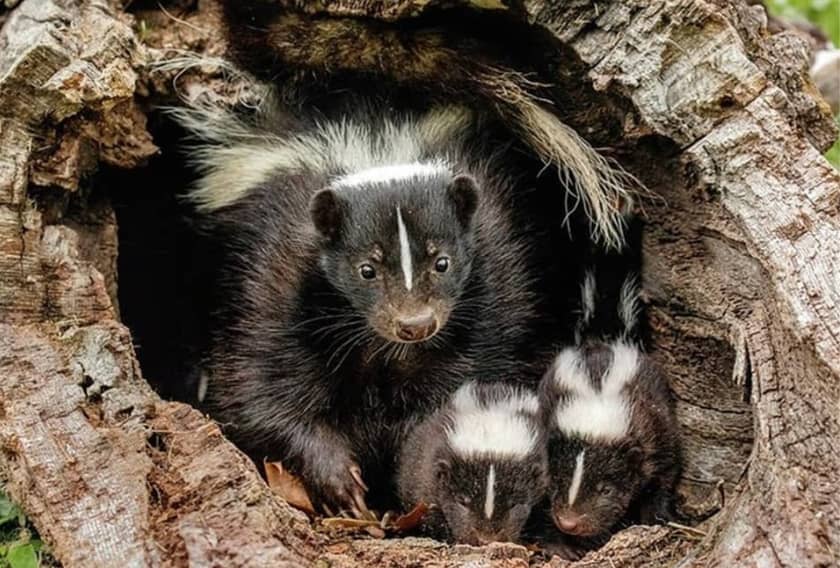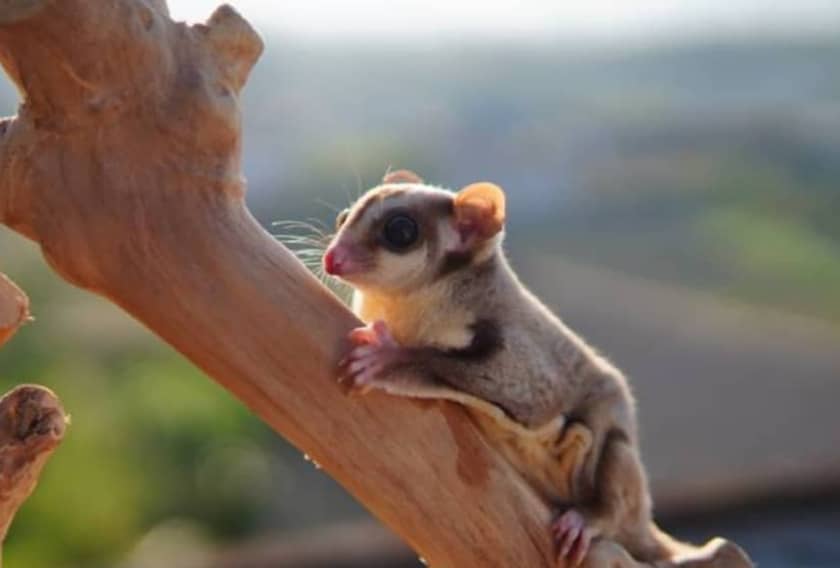Owning flying squirrels comes with certain pros and cons which you should be aware of before making an integral member of your family. A flying squirrel is a small, nocturnal rodent known for its exceptional gliding ability. These creatures share their personality with Sugar Gliders.
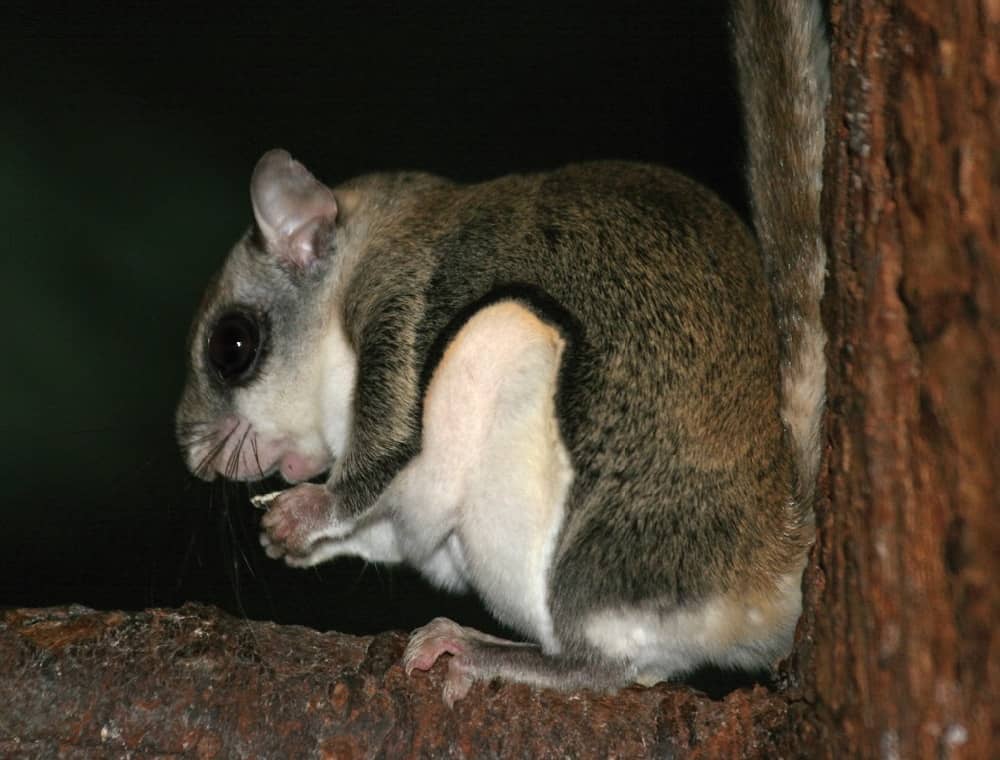
With huge, wide eyes specialized for night vision and a thin membrane of skin known as the patagium stretching between its front and rear limbs, this agile species can leap from tree to tree, covering impressive lengths in the air. The Northern flying squirrel and Southern flying squirrels have some similarities and some differences which should be well known before bringing them home!
Its silky, thick fur varies in color from gray to brown, providing insulation and camouflage in its wooded environment. The flying squirrel, which is social and curious by nature, is a fascinating and unique pet that demands specialized care and a secure, spacious room to thrive.
Pros and Cons of Keeping Flying Squirrels as Pets
While flying squirrels are not as common as other rodents, they can be kept as pets in most states, with some requiring a permit. There are certain pros and cons to these adorable little flying squirrels that you should consider before taking them home.
Pros of Keeping Flying Squirrels as Pets
There are various benefits to having a pet flying squirrel:
Unique Pets
Flying Squirrels are brilliant and can make engaging small companions. They can also bite if nervous, but they are not known for biting as much as other small pets do.
Social and Affectionate Animals
They are generally social rodents and can bond with their owners, often showing affectionate behavior. They are very friendly, so they keep entertaining themselves and engaging themselves with humans. Compared to some other pets, flying squirrels are relatively quiet, which can be beneficial in an environment.
Active and Playful
Flying squirrels are curious and playful rodents, which makes them engaging pets. They always keep entertaining themselves, it is fun to see them like that. Their natural climbing and gliding abilities make them entertaining to interact with and watch.
Naturally, Clean Themselves
There is no such need to bathe or brush your flying squirrel. These creatures brush themselves with their tiny tongues and paws, so they keep themselves clean without any human help.
Long Life Expectancy
Flying Squirrels have a long life expectancy of about 10–12 years. This is good for them, who committed to having pets for many years.
Low-maintenance Pets
You can easily handle, keep, and feed your flying squirrels with low maintenance. Once you prepare a cage for them with branches and ladders, it stays for a long time. You don’t need to maintain and arrange again and again for them.
Flying squirrels have a varied diet that can include fruits, vegetables, nuts, and specially formulated pellets. Feeding them is very simple, as many of their food items are easily accessible. Also, due to their small size, they do not consume a large amount of food.
Cons of Keeping Flying Squirrels as Pets
There are significant disadvantages to keeping a flying squirrel, making it a pet only fit for certain sorts of people:
Specialized Care
They have unique care needs that may be difficult to provide. While they are small, flying squirrels require enclosures that are tall rather than wide to allow them to glide. This can be complicated to live in, especially in small living spaces.
They need to be kept in a stable environment, as they are very sensitive to temperature changes. Because of their climbing abilities, they may easily escape from cages, making it difficult to secure their environment.
Nocturnal Nature
Their nocturnal activity means they are most active when their owners are asleep. This can result in nighttime noise, such as scurrying and chattering, which might disturb your sleep. Also, this will be problematic for owners as they are not taking out time to interact with their flying squirrels.
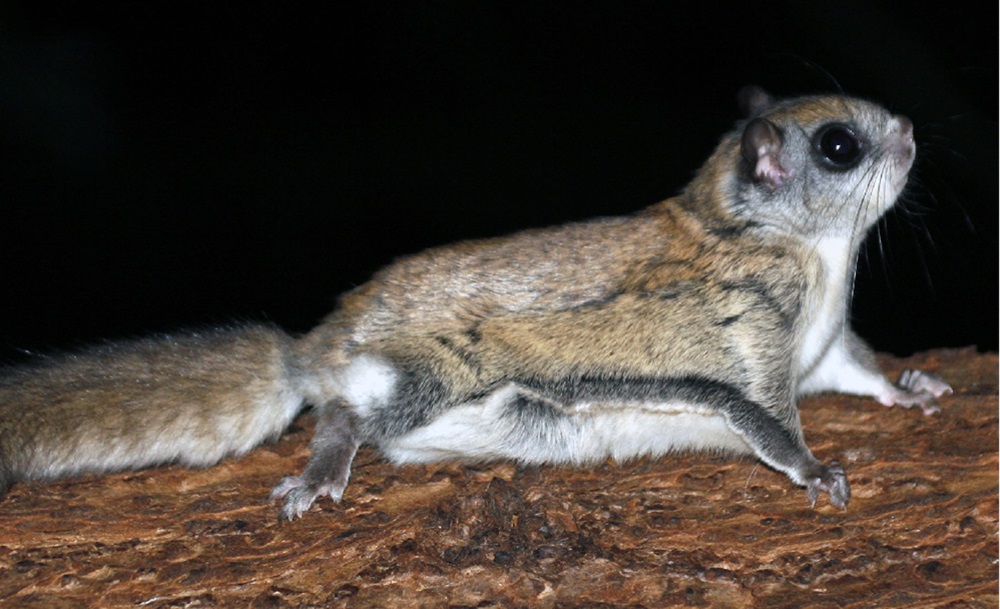
They are voracious chewers and can be destructive if not given adequate chewable materials.
Socialization and Bonding Challenges
Flying squirrels can become cautious and frightened around humans if not properly socialized at a young age, which makes them less engaged as pets. Establishing a close bond with a flying squirrel requires time and patience, which may not be possible for everyone, particularly for those who have a hectic routine because they will sleep early as tired and the flying squirrel stays active all night only.
Not Ideal for Solo Pets
Flying squirrels are social animals; therefore, to keep a single one would be problematic as your squirrel can feel lonely and depressed.
Also, if you have other pets at home, flying squirrels are unlikely to get along with them and may be threatened by cats, dogs, ferrets, and large birds.
Specialized Veterinary Care
You may have problems locating a veterinarian who understands their medical care. This might mean traveling longer distances for care or facing higher veterinary costs. Flying squirrels are susceptible to various health conditions, such as calcium deficiency, which requires particular nutritional supplements and monitoring, delaying their treatment.
In certain areas, owning a flying squirrel may be restricted or forbidden, so check local regulations before purchasing one.
A Quick Review: Pros and Cons of Keeping Flying Squirrels
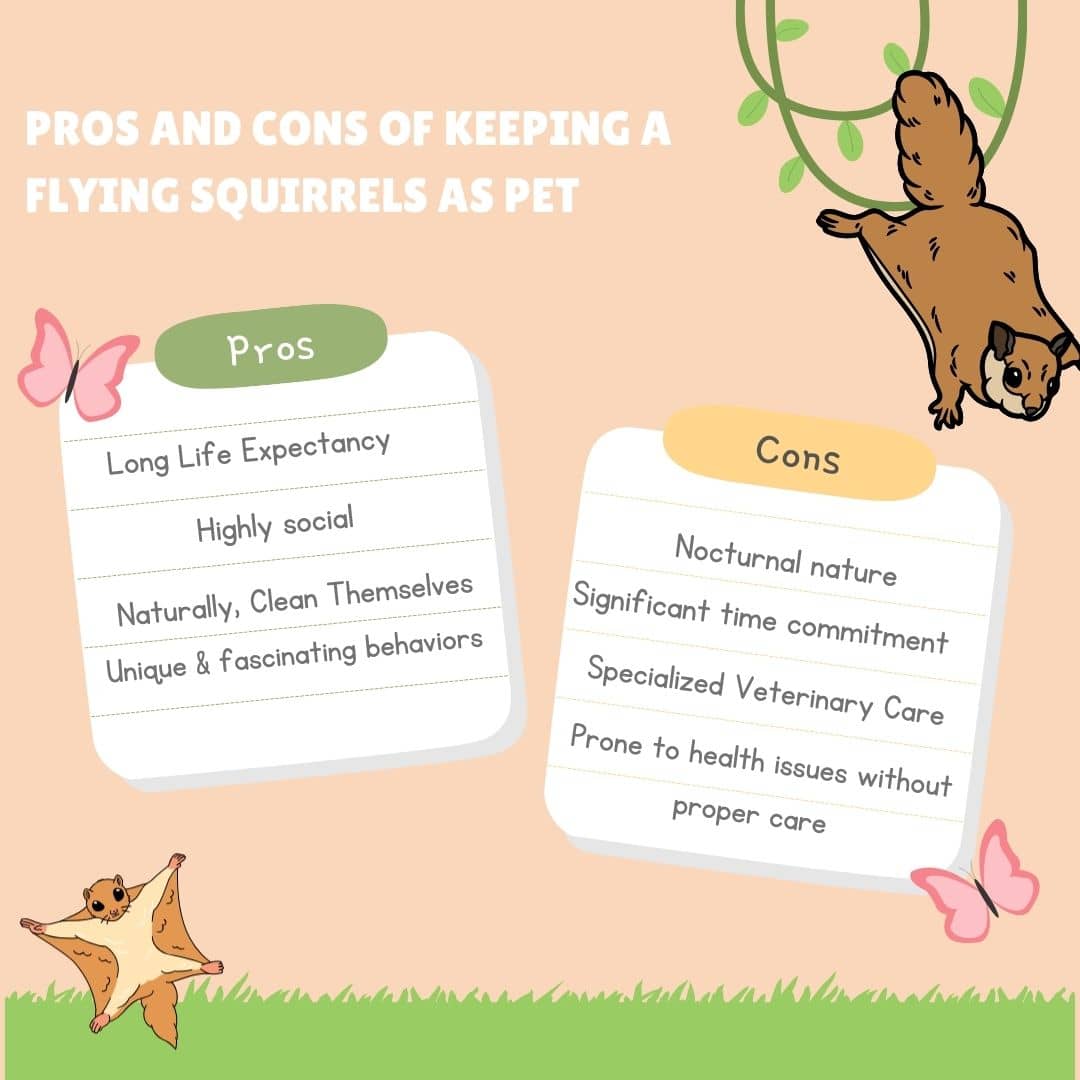
Frequently Asked Questions
Question 1: Can flying squirrels be kept in a regular pet cage?
Ans: Flying squirrels may live in cages, but they must be spacious, safe, and supplied with climbing structures and enrichment items to meet their busy temperament. Regular pet cages might not be sufficient.
Question 2: How do I manage a flying squirrel’s nocturnal behavior?
Ans: It is critical to modify your schedule and give them enrichment and activities during their busy periods because flying squirrels are most active at night. Consider whether their nocturnal pattern is compatible with your routine or not.
Question 3: What are the signs that a flying squirrel is unhappy or stressed?
Ans: Signs of stress or unhappiness in flying squirrels can include aggressive behavior, excessive hiding, changes in eating habits, or destructive behavior. Providing a stimulating environment might be beneficial.
Conclusion
Flying squirrels can be incredibly rewarding pets for the right person, offering a unique and interactive experience. However, they also come with challenges, particularly in terms of habitat requirements, socialization, and the need for specialized care. Potential owners should carefully consider these factors to determine if a flying squirrel is the right pet for their lifestyle. They can also join some authentic forums for discussions and understanding their pet better.

